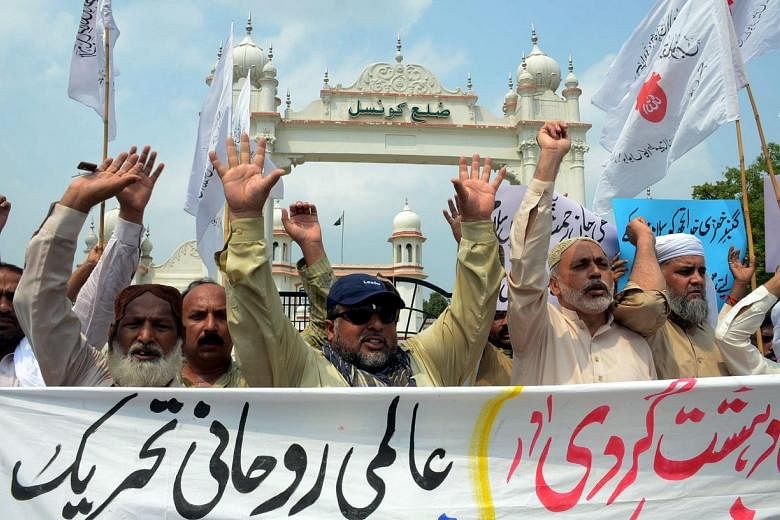In its editorial on July 7, the paper say that there could be no greater sign of the dilemma confronting the Muslim world than the terrorist attack on one of the holiest sanctuaries of Islam.
The militants' message was clear as Saudi Arabia was rocked by three separate, but apparently coordinated, acts of terrorism on Monday (July 4), the most shocking being the suicide blast outside the Prophet Muhammad's mosque in Medina, in which four security personnel were killed as they tried to prevent the bomber from entering the precincts.
In other incidents, a Shi'ite mosque in the eastern town of Qatif was targeted; details are sketchy about that incident, just as there was initial confusion about the Medina blast.
Earlier in the day, a suicide bomber had struck outside the US consulate in Jeddah. News reports suggest the suspect was a Pakistani expatriate.
The three bombings - with the Medina attack invoking particular revulsion - show that the militants can strike with relative ease across the kingdom.
No claims have been made, but the militant Islamic State in Iraq and Syria (ISIS) is suspected of involvement.
Of course, there is a precedent for such violence in Saudi Arabia's recent history: in 1979, hundreds of Salafi militants - ideologically on the same wavelength as IS - occupied the Masjid al-Haram in Mecca.
That shocking episode ended in a bloody operation as security forces flushed out the militants from the grand mosque.
Clearly, the spirit of the grand mosque assailants has lived on and been reanimated in the form of the modern storm troopers of Islamist militancy.
Monday's terrorist attacks point to a significant militancy problem in Saudi Arabia. As per official Saudi figures, there have been 26 terrorist attacks over the past two years.
The kingdom had also battled a violent Al-Qaeda insurgency over a decade ago. Whether it is ISIS today or Al-Qaeda 12 years ago, or the grand mosque assailants even before that, the fact is that militant movements find willing recruits from within Saudi society.
This is, of course, because for decades, the House of Saud has looked the other way as hard-line clerics have preached a narrow sectarian and confrontational ideology.
For example, clerics in the kingdom have urged young Saudis to go abroad - to Syria, to Iraq - to fight other people's wars, while the state has allegedly backed militant fighters battling Damascus. Now these radical elements are turning their guns on internal targets.
Pakistan knows the folly of turning a blind eye to radicalism. The Saudis must act now to reverse course, or else considering the deep roots of puritanical elements within the kingdom, more chaos may well be in the pipeline.
* Dawn is a member of The Straits Times media partner Asia News Network, an alliance of 21 newspapers.

